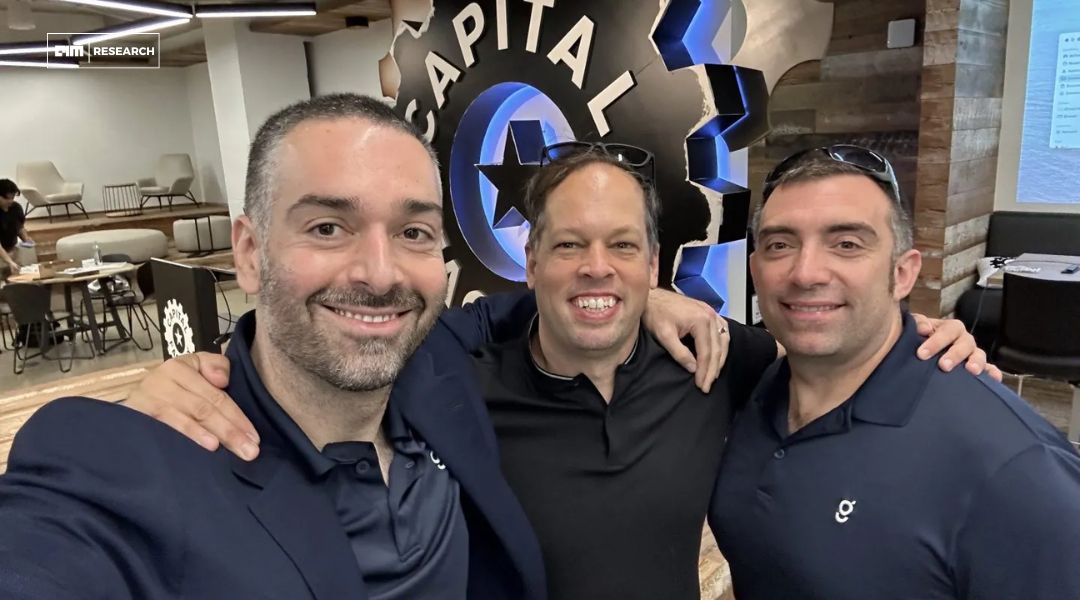
When It Comes to Synthetic Data Gretel AI Is a Name You Need to Know
- By Anshika Mathews
- Published on
We’re building the product we always wished we had.


Alex Watson isn’t based in the heart of Silicon Valley, yet his work is shaping one of its most promising AI startups. From his base in San Diego, Watson, a seasoned entrepreneur with a background spanning the U.S. Department of Defense, AWS, and successful startup exits, co-founded Gretel, an AI-driven synthetic data company that is quietly and quickly making its way into Fortune 500 firms.
Gretel’s mission? To solve one of the most pressing challenges in AI: access to high-quality, privacy-preserving data. It’s a problem Watson saw firsthand during his tenure at Amazon Web Services (AWS), where companies struggled to balance data accessibility with security. Instead of building another data management tool, Watson and his co-founders, Ali Golshan and John Myers bet on synthetic data as the key to unlocking AI’s potential.
Gretel was launched in 2019 as a multimodal synthetic data platform, allowing developers to create artificial datasets with the same statistical properties as real data without the regulatory and privacy hurdles. The idea came from Watson’s experience working with large AWS customers who needed ways to train AI models without compromising sensitive data.
“I saw how important data is going to be for AI and machine learning,” Watson explained. “Specifically, how companies struggled to enable access to data themselves. This led us to our initial thesis, which eventually became Gretel: Instead of building another wrapper around data or a silo that never works—what if we could simply make the data safe?”
The approach caught the attention of investors. Gretel has raised $65 million to date, with a $50 million Series B led by Anthos Capital, and participation from Greylock, Moonshots Capital, Village Global, and Section 32. It also counts heavyweights like Snowflake CEO Sridhar Ramaswamy, Moonshots Capital General Partner Kelly Perdew, and Samsara CMO Meagen Eisenberg among its advisors and angel investors.
Gretel’s model is built on a straightforward premise: companies need large-scale, high-quality data to train AI models, but most real-world data is locked behind compliance regulations, privacy concerns, and access restrictions. Synthetic data offers a way around this either by anonymizing existing data or generating entirely new datasets from scratch.
John Myers, Gretel’s CTO, likens synthetic data to synthetic oil: “Everyone that drives a car today is using synthetic oil. It’s manufactured, but it has guaranteed qualities that make sure the engine runs smoothly. Data works in much the same way.”
The implications are massive. AI development is often slowed by data silos, lengthy approval processes, and strict access controls. By allowing developers to generate synthetic versions of real-world data, Gretel removes those bottlenecks, accelerating innovation while maintaining privacy compliance. The platform has attracted more than 100,000 active users, with over 150,000 users on its cloud-based system. Fortune 500 companies, including Illumina, Google, SAP, Snowflake, and Bayer, have either used or are currently leveraging Gretel’s synthetic data technology.
Watson isn’t new to the startup world. Before Gretel, he co-founded Harvest AI, a cybersecurity company acquired by AWS for nearly $20 million, where he spent three years working at the intersection of AI and security. Golshan, Gretel’s CEO, previously founded two security startups, StackRox (acquired by Red Hat) and Cyphort (acquired by Juniper Networks). Myers, meanwhile, co-founded Efflux Systems, which was acquired by NETSCOUT. Together, the trio brought deep experience in security, AI, and data infrastructure to Gretel.
Though headquartered in San Francisco, Gretel operates as a fully distributed company, with employees across the U.S. and Canada. The team has grown to 70 employees and is expected to surpass 100 in the coming years. Watson himself chose San Diego over Silicon Valley, a decision he believes more startup founders will make as remote work becomes the norm.
“UC San Diego is a great place to recruit talent. You can hire people right out of school—it has a really good computer science program and cybersecurity division as well,” Watson said. “Remote work is here to stay. People want more freedom with where they work. If you could live anywhere, you’re likely to pick a place that has great weather all the time.”
Gretel brands itself as a “developer-first” company. Its core products are privacy-preserving synthetic data tools designed with accessibility and transparency in mind. Developers can interact with Gretel’s platform through a cloud-native console, a command-line interface (CLI), or a software development kit (SDK). The company offers a free “developer” plan, ensuring access to its privacy engineering tools from day one.
Transparency is another key focus. Gretel’s open-source core allows developers to inspect and contribute to its privacy-preserving data technologies. “Privacy is a zero-sum game,” Myers said. “We decided to build on top of an open-source core so anyone can peek under the hood.”
For Watson and his co-founders, Gretel is a response to a problem they’ve encountered throughout their careers. “The one common theme among everyone at Gretel is that we’ve all experienced the challenge of sharing or accessing data in a frictionless, easier way,” Watson said. “We’re building the product we always wished we had.”
📣 Want to advertise in AIM Research? Book here >
Cypher 2024
21-22 Nov 2024, Santa Clara Convention Center, CA
A Vendor Briefing is a research tool for our industry analysts, and an opportunity for a vendor to present its products, services and business strategies to analysts who cover the vendor specifically or a related technology or market.
AIM Research encourages technology vendors and agencies to brief our team for PeMa Quadrants, when introducing a new product, changing a business model, or forming a partnership, merger, or acquisition.


